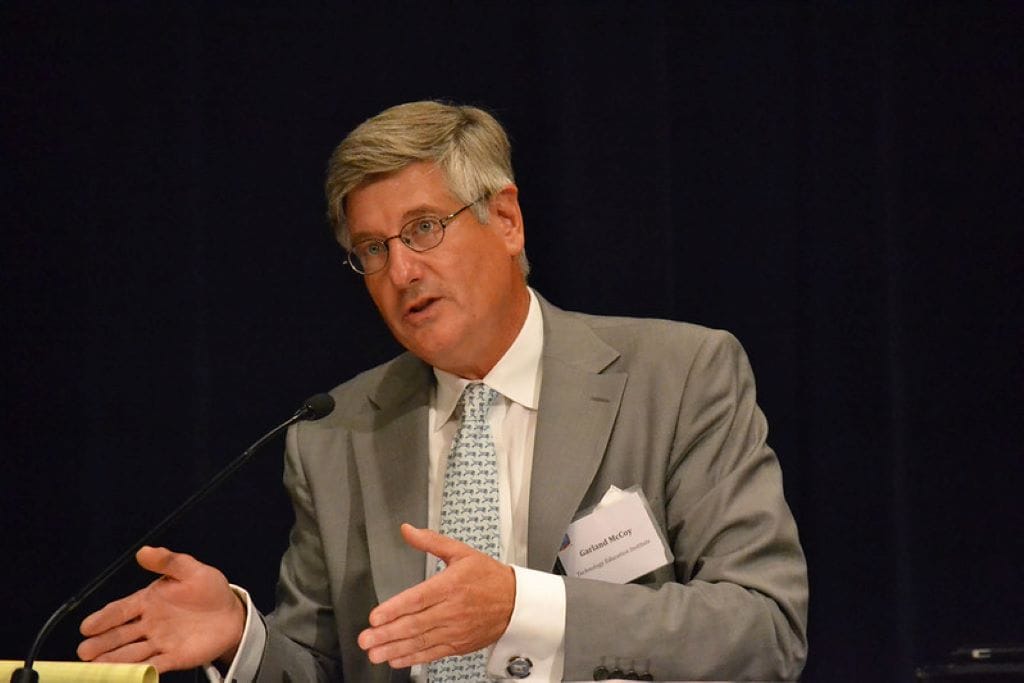Garland McCoy: Some State Attorneys General Are Preparing to Take the FCC to Court
While some will “cash out,” other state broadband officials will seek the full measure of federal broadband infrastructure funds due.

Let me start by saving the time of those state broadband officials who are going to accept the recently released FCC Broadband Map Data at face value and take NTIA’s “cash out,” and in doing so, forgo participation in the available FCC challenge process. For those state broadband officials, the insights, and recommendations I provide below will be of little interest to you.
If the past is any prelude to the future, the Internet Service Providers will use the same challenge criteria to successfully throw out the crowdsourced and bulk data that states have gathered for their own maps. As I detailed in my recent article on Broadband Breakfast, the FCC published specifications for its challenge process on September 15, 2022.
This directive gives ISPs authority to challenge data drawn from their respective service territories, leaving states with little choice but to accept the FCC’s map. The only notable exception is California, which has put in place its own statewide device-driven data gathering methodology, and we consider its data as likely challenge-proof.
Not all is lost for states seeking to challenge the FCC’s maps
But all is not lost for other states. By the end of the first quarter of next year I firmly believe there will be some state broadband officials who will seek to pursue the full measure of federal broadband infrastructure funds due them, and not simply acquiesce to a smaller portion of funds that is supported by the flawed FCC map.
I base this assumption on new methodologies now available to states, which will bring the same type of credible validation and metering to broadband service at the end-user level that has been available, and required, for decades with other important utilities such as electricity, water, and natural gas. In other words, these methodologies will allow consumers to determine if they are getting true broadband speed connectivity – and frankly whether or not they are getting what they are paying for.
These state broadband officials have reviewed the recently released FCC broadband map and have compared it to their own respective state broadband maps. And not surprisingly, what they are finding is an FCC map that vastly overstates the amount of broadband connectivity in their states, and in doing so, vastly reduces the amount of federal dollars that state will receive. And these differences are significant. It could mean as much as a loss of tens of millions of dollars in smaller states and up to half a billion dollars or more for larger states.
What these state officials will ultimately find is irrefutable evidence that many of the ISPs doing business in their state have been systematically providing significantly less service speed and quality than their customers’ terms of service agreements stipulate.
States are beginning to work with their state attorneys general on lawsuits
Knowing this and considering how the FCC has not run a transparent and straightforward process – and has used the calendar in a way to run out the clock on states, you can see why some state broadband officials have begun working with their state attorneys general to not only prepare to challenge the FCC data, but to take their case to court.
Consider the calendar issue alone: The FCC released its long-anticipated new map data on November 18, 2022, and is giving states until January 13, 2023, to respond – with the major holidays of Thanksgiving, Christmas, and New Year’s falling in the interim.
If you are one of these state broadband officials currently considering your options to challenge and/or litigate, then we can play a vital role in your efforts. You will need to ensure that your state broadband map data is litigation-ready by putting in place bullet-proof methodologies and highly credible network monitoring devices/meters. This data can be used to support your case for the full broadband infrastructure funding that your State is entitled to receive. Additionally, these same devices and methodologies can be used to support any state lawsuits against ISPs for false/deceptive advertising and breach of the spirit, if not the letter, of customer “terms of service” contracts.
Importantly, our device-driven methodology also focuses solely on the premium customers of ISPs in rural counties of a state, which establishes what FCC refers to as the “available service” for a given ISP’s service territory.
You have the power to truly close your state’s broadband connectivity gap by fully utilizing the historic level of federal infrastructure funding that has been set aside for this purpose, which in turn will bring accountability and equity to broadband network services for your citizens.
If you want a citizen-centric partner in these initiatives, please visit our website and contact me at the email address provided below. PAgCASA is a non-profit organization focused on promoting rural prosperity, and we are utilizing industry standard network monitoring/metering devices, same as used by the largest ISPs, litigation-ready methodologies, and an expert team and partnerships to accomplish our goals.
Garland T. McCoy, Co-Founder and Executive Director of Precision Ag Connectivity and Accuracy Stakeholder Alliance, is a long-time non-profit veteran in the fields of technology and telecommunication policy having served as Founder and CEO of the Technology Education Institute. Garland was recently an adjunct professor at Syracuse University’s iSchool, teaching information policy and decision making, and can be reached at garland.mccoy@pagcasa.org. This piece is exclusive to Broadband Breakfast.
Broadband Breakfast accepts commentary from informed observers of the broadband scene. Please send pieces to commentary@breakfast.media. The views reflected in Expert Opinion pieces do not necessarily reflect the views of Broadband Breakfast and Breakfast Media LLC.

